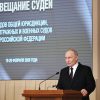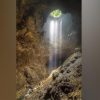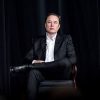The fact that “Venus is a Russian planet” is primarily his merit
The luminary of Russian cosmonautics, practically the last of the Mohicans, Academician of the Russian Academy of Sciences Mikhail Marov passed away on Thursday, 30 November. He died early in the morning after a long illness at the age of 90.

In general, age is not about people like Mikhail Yakovlevich. An outstanding Soviet and Russian scientist in the field of mechanics and physics of space, astrophysics and planetary research, until his last day he was younger than many young people, and never stopped dreaming about space. He is an example of how to live so that the most unrealizable dreams at first glance come true. To do this, you need to believe in them and work, sparing no effort. This was the only way that Marov, together with his colleagues Mstislav Keldysh, Georgy Babakin, and Sergei Korolev, managed to land Soviet spacecraft on the Moon, Mars, and Venus.
Venus was Mikhail Yakovlevich’s special pride, because with his direct participation, the Soviet Union managed to send 19 (!) Soviet Venus spacecraft to the morning planet, eight of which reached the surface and transmitted data unique for that time to Earth. The fact that “Venus is a Russian planet” is, first of all, his merit.
“This was the culmination of my entire scientific career,” Mikhail Yakovlevich said during his last pre-anniversary interview with MK, “I, as they say, spent days and nights at the NPO named after. Lavochkina. Suffice it to say that it was the USSR that was the first to land its spacecraft on the surface of the Moon, Mars and Venus, the first to automatically return samples of lunar soil to Earth, and the first to obtain a photographic panorama of Venus on Earth. In six years, we sent 16 spacecraft to other planets!”
The sadder it was for Marov to see our reality — over the last 47 years, the country has not been able to land a single vehicle on any of the above planets.
True, in the last summer of his life, the academician was full of anticipation, because Roscosmos was preparing the first flight after such a long break and the landing of the first spacecraft in modern history on the Moon. 90-year-old Mikhail Marov, who until recently maintained incredible clarity of mind, gave interesting lectures, was asked for advice, he was glad about it. It seemed that all his illnesses faded into the background at that time. He was happy to give interviews in which he shared his experience with our readers.
However, Luna 25, as we know, failed — instead of a soft landing on August 19, it crashed into the Earth’s natural satellite. For the scientist, like for many others, this was a strong blow. On the eve of his anniversary, he went to the hospital — his heart gave out.
“For me, this was perhaps the last hope of seeing the revival of our lunar program,” the sad Mikhail Yakovlevich told me then on the phone.
But how strong he was! Even after such a blow, he recovered, and on the day of the anniversary celebration at the institute, he was able, standing at the pulpit, to give a most interesting lecture about the search for life on other planets!
The youngest employees of the institute were drawn to him; they were proud that they worked in Marov’s scientific group, in his department of planetary research and cosmochemistry.
In general, today his departure from us is deeply felt not only by geochemists, but also employees of the NPO named after. Lavochkin, RSC Energia, Space Research Institute of the Russian Academy of Sciences, Moscow State Technical University named after. Bauman, which he once graduated from, the Institute of Applied Mathematics, where for a long time he headed the department of applied mechanics and planetary physics.
During our last conversation with him, he regretted that almost none of his colleagues remained nearby. peers: “One by one, many people I worked with and school friends left.” But he was glad that his family remained next to him, that throughout his life he “didn’t do unworthy things, didn’t harm anyone,” and managed to write best-selling books: “Soviet Robots in the Solar System” and “Space: From the Solar System” deep into the Universe.»
























































Свежие комментарии